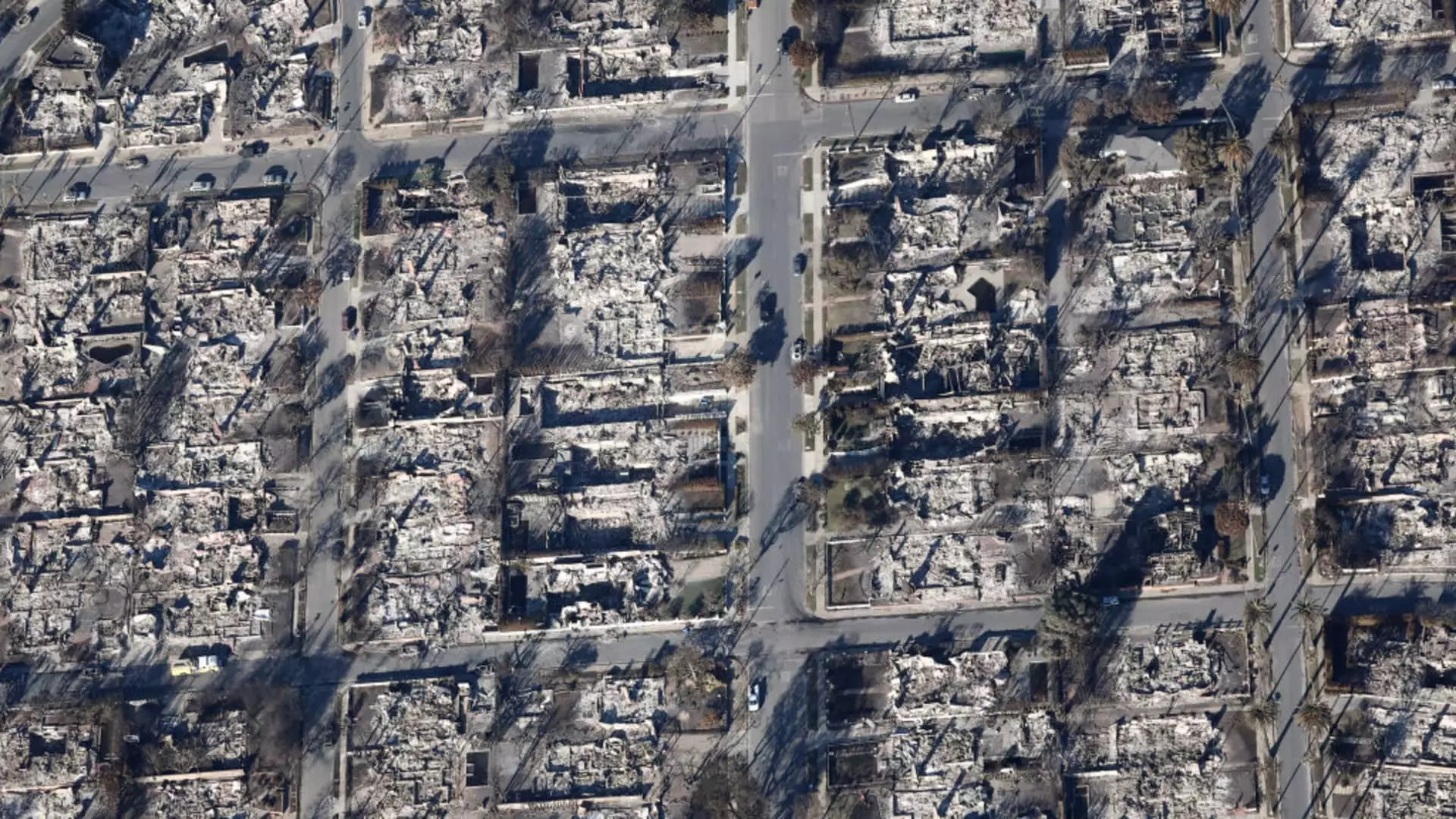In the wake of devastation from a recent wildfire that ravaged significant portions of Los Angeles, families are wrestling with the urgent need for housing. Joe Thompson, a 44-year-old trader, experienced the fallout firsthand after a wildfire swept through the Pacific Palisades, leaving many homes, including his, in varying states of uncertainty. The struggle for suitable temporary accommodations has been amplified by a growing housing crisis, exacerbated by the natural disaster. With limited options available, Thompson’s family faced an outrageous rental market, with prices soaring almost instantaneously.
The property Thompson eyed—a five-bedroom home in Santa Monica newly listed for $28,000 per month—illustrates the shocking inflation of rental costs following the fires. This exorbitant price is more than double the amount for similar properties a year prior. The rapid increase in rental listings, accompanied by multiple applications for the same properties, underscores a dire situation where demand far exceeds supply.
As communities grapple with the aftermath of these devastating wildfires, several landlords have reportedly taken advantage of desperate families searching for shelter. California laws prohibit rental price increases exceeding 10% during a declared state of emergency; however, many landlords reportedly bypass these regulations. Local authorities, including Assemblymember Jacqui Irwin, have labeled these practices as “absolutely unacceptable,” yet enforcement remains challenging. An investigation by the state’s Attorney General is in progress, with citizens encouraged to report instances of rental price gouging.
The circumstances reflect a broader pattern often witnessed during such crises—natural disasters trigger a scramble for housing, leading to unprecedented economic strain on those most vulnerable. Families who were already struggling with affordability issues before the wildfires are now facing an acute crisis, with many either on waiting lists for potential rentals or embroiled in bidding wars for properties.
Prospective renters in areas affected by the wildfires—including those with significant rental histories—are experiencing an unexpectedly harsh reality. Brock Harris, a real estate broker, notes that homeowners who have scarcely engaged with the rental market in decades are navigating unfamiliar territory characterized by inflated prices and competitive dynamics. Many families, like the Thompsons, find themselves in a predicament where securing a home that matches their prior living conditions is exceedingly tough.
The wildfires devastated over 40,000 acres, destroying more than 12,300 structures. Victims of these calamities span a range of socioeconomic backgrounds. They range from low-income renters to affluent families with multiple properties, all thrust into a state of displacement. The inconsistent availability of temporary housing solutions is further complicating the search for longer-term accommodations.
In response to the crisis, various initiatives have emerged to assist wildfire victims. Temporary shelters have been set up by the state, while organizations like Airbnb.org are collaborating with local nonprofits to provide free short-term housing for those affected. This collective effort illustrates communal resilience in the face of adversity, where individuals and groups rally to support those in need.
However, challenges remain. Advocacy groups are documenting rampant rental price gouging, warning that the influx of unscrupulous landlords could exacerbate existing problems for working-class families. The situation threatens to worsen the already precarious housing and homelessness issues that plague Los Angeles. Magdaleno Rosales of the Los Angeles Tenants Union emphasized that such exploitation could lead to increased evictions, particularly targeting vulnerable tenants.
As families like the Thompsons look for housing amidst their pain, their journey becomes one of personal loss and unpredictability. The psychological and financial toll of seeking shelter during this turbulent time cannot be understated. Housing searches often transcend mere transactions; they become stark reminders of everything these families have endured.
While stories of rampant price increases are on one end of the spectrum, there are instances of compassion among landlords, as well. Many are opting to keep rental prices stable or even reduce them to ease the burden on displaced families. Tannis Mann, who lost her home just months after purchasing it, shares that her search revealed that some landlords are choosing empathy over profit.
As families navigate through this housing landscape riddled with uncertainty, the hope remains that the community can rise together, supporting those recovering from the devastation. Future policies will need to address systemic inequities in housing to ensure families can find stability amidst calamity. The challenges posed by natural disasters highlight the necessity for both immediate aid and long-lasting solutions to drive change in the struggling housing market.

